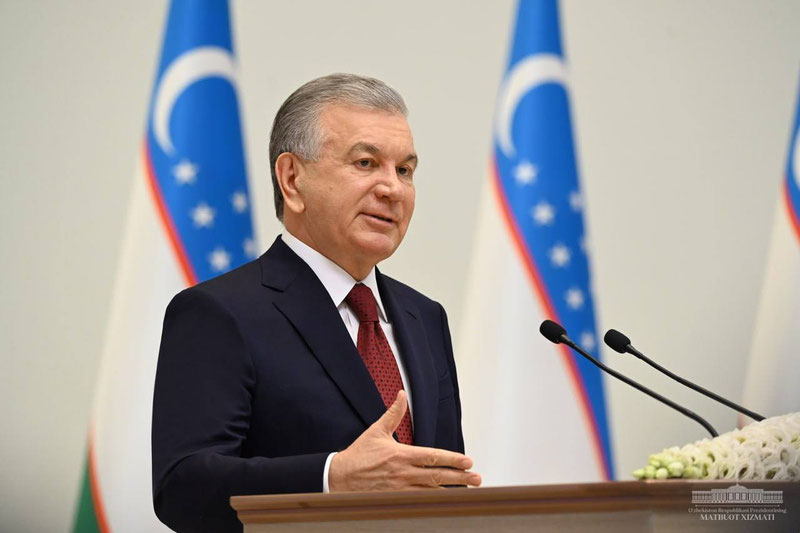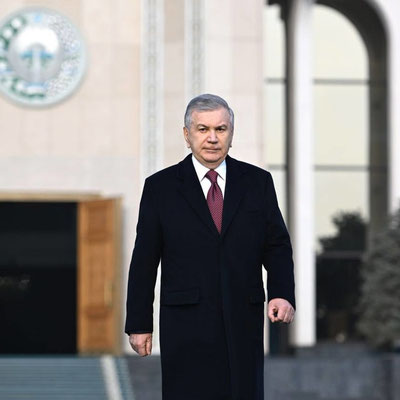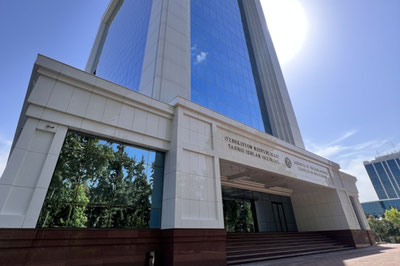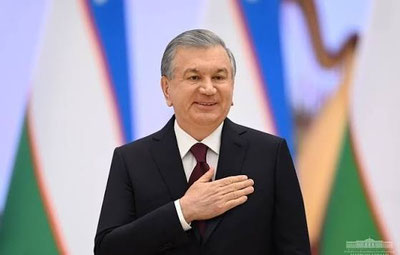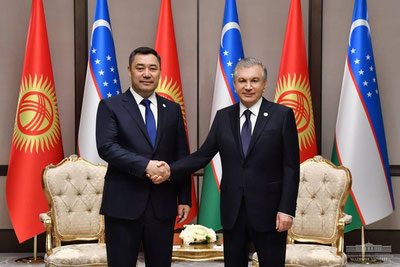President Shavkat Mirziyoyev sent an address to the participants of the international conference on combating terrorism and extremism. The President's press service reported this.
I sincerely congratulate all the participants and guests of the joint conference dedicated to strengthening cooperation in the fight against terrorism and extremism, organized by the Shanghai Cooperation Organization Regional Anti-Terrorist Structure and the Commonwealth of Independent States Anti-Terrorist Center.
This important international forum, organized in cooperation with prestigious regional structures such as the SCO and CIS, reaffirms our commitment to develop unanimity and practical cooperation in ensuring peace, security, and stability in our vast region.
I would like to emphasize that today's conference provides an essential platform for exchanging experiences and knowledge, and for developing recommendations and proposals on coordinating efforts to combat modern threats and dangers to security.
The conference agenda includes pressing issues related to implementing the most successful national practices, cooperation in the fight against terrorism, establishing effective mechanisms for exchange in science and education, preventing the spread of extremism and radical ideologies, and forming practical means to combat the legalization of criminal proceeds and financing terrorism.
I am confident that tomorrow's “East – Anti-Terror – 2024” joint anti-terrorist exercises, to be held in our country for the first time, will serve to expand practical cooperation in combating common security threats and enhance the capacity of special forces units.
Dear forum participants!
Unfortunately, the intensification of geopolitical tensions and conflicts, the lack of mutual trust among leading states, and the decreasing role of global security institutions negatively affect the development of open and effective international cooperation in combating terrorism and extremism threats.
Meanwhile, risks and threats in cyberspace are intensifying. Activities related to illegal activities, recruitment, and propagation of radical ideas through Internet networks and channels that disregard national borders and legal norms are increasingly being implemented.
As a result, today representatives of relatively vulnerable segments of the population, including our youth and labor migrants, are becoming victims of “online brainwashing,” being drawn into various illegal groups, and committing crimes.
Therefore, improving the legislative base and carrying out joint practical measures aimed at counteracting and promptly responding to such risks and threats within the framework of the SCO Regional Anti-Terrorist Structure and CIS Anti-Terrorist Center activities are among the most important tasks.
It should be noted that our country's National Strategy on Combating Terrorism and Extremism is based on a comprehensive, inclusive, and systematic approach, embodying preventive measures and timely practical responses. Strengthening the community spirit and developing open dialogue, supporting the education sector in all respects, creating jobs, and ensuring reliable social protection for the population are the priority directions in this area.
At the same time, we consider the protection and promotion of human rights and freedoms and the strict adherence to the principle of the rule of law as the fundamental basis for combating terrorism and extremism.
Today, the National Strategy on Combating Terrorism and Extremism is being consistently implemented in Uzbekistan, extensive efforts are made to support the youth and realize their potential, and measures are taken to reintegrate individuals returned from “hot spots” into peaceful life.
This year, a Regional Expert Council on Rehabilitation and Reintegration was established in collaboration with the UN Counter-Terrorism Directorate, and a new “roadmap” for full-scale partnership was adopted.
In conclusion, I would like to emphasize that close cooperation and effective coordination of our countries' special services will continue to be the priority direction of interstate collaboration to ensure stable peace and stability in the region.
I wish all the participants of the conference fruitful discussions and success.
